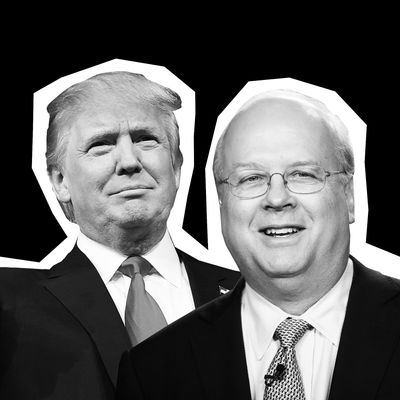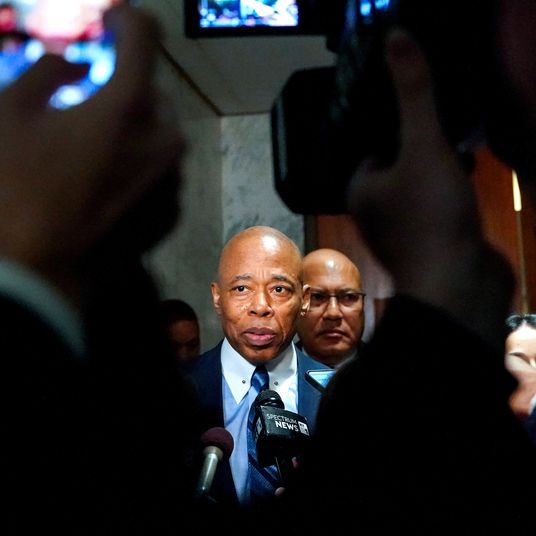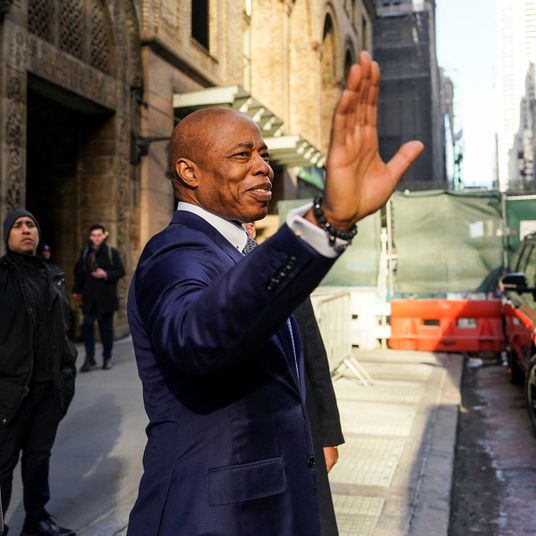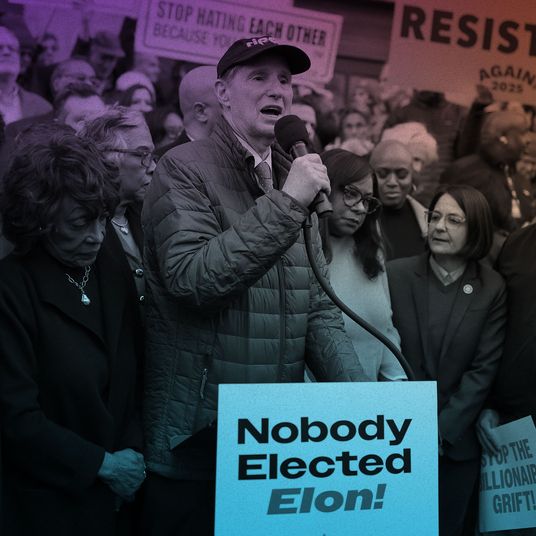
Karl Rove is back. Last month, the George W. Bush strategist and former genius appeared in the middle of a New York Times report on Trump campaign strategy, in which he perceptively “warned Mr. Trump that he had fallen behind in the task of damaging Mr. Biden.” Today, he pops up in a Politico story, sagely advising the campaign to “focus on defining the president’s plans for a second term, highlighting his challenger’s policy shortcomings and encouraging the president to moderate his tweets as much as possible.”
That Rove would want to help Trump win a second term hardly comes as a surprise. Many high-level Bush administration veterans have recoiled at Trump’s racism, authoritarianism, and unfitness for office, and some have even had a crisis of conscience about their party’s historic alliance with racism. Rove has no conscience. His long record of public prognostication shows no evidence he draws a distinction between truth and lies, even in his own mind. Before Trump came along, Rove used to represent the state-of-the-art in Republican evil.
From the standpoint of ethics (or, more precisely, the lack thereof) the alliance between the two men makes perfect sense. What makes the burgeoning Rove-Trump partnership strange is that the two men consider each other absolute fools.
During the Obama years, Trump repeatedly mocked Rove as a failure, blaming him for Obama winning the presidency and mocking his efforts to help Mitt Romney in 2012 as ineffective.
In 2015, at a time when few people gave Trump any chance of winning the nomination, Rove privately described him as “a complete idiot.” (Asked about this remark, Rove replied, “What I may or may not have said was said off the record.”)
Trump, in response, unleashed a torrent of invective against Rove that would last for months. Trump called Rove a “dope” and a “dummy” while reveling in his march to the party’s nomination.
Once Trump had captured the nomination, the two men made a peace of sorts borne of mutual self-interest. Tim Alberta later describes a meeting between Rove and Trump in the spring of 2016, in which Trump attempted to identify which states he could compete in. At first Trump proposes that he can win Oregon, only for Rove to correct him. “I don’t need to,” Trump replied, “I can win California.” After Rove told him he couldn’t win there either, Trump responded, “Well, I’ll win New York.”
Rove disabused him of this notion, too, explaining, “If you spend a day trying to win votes in a place like California or New York or Oregon, it’s a day you can’t spend trying to win votes in Pennsylvania or Iowa.” Trump reportedly “looked puzzled” and replied, “I can win Iowa?”
Whether or not the exchange took place exactly like this, with the clueless candidate’s perfectly timed punchline, what it reveals is not only his general ignorance of well-known facts about the Electoral College, but Rove’s view of himself as kindly tutor to an amateur hopelessly out of his depth.
It’s hardly unusual for old rivals who dislike each other to form a partnership based on a certain grudging respect. But the thing is, Trump and Rove don’t even respect each other. It’s just that Trump apparently can’t find any halfway-competent campaign advisers to work for him.






























